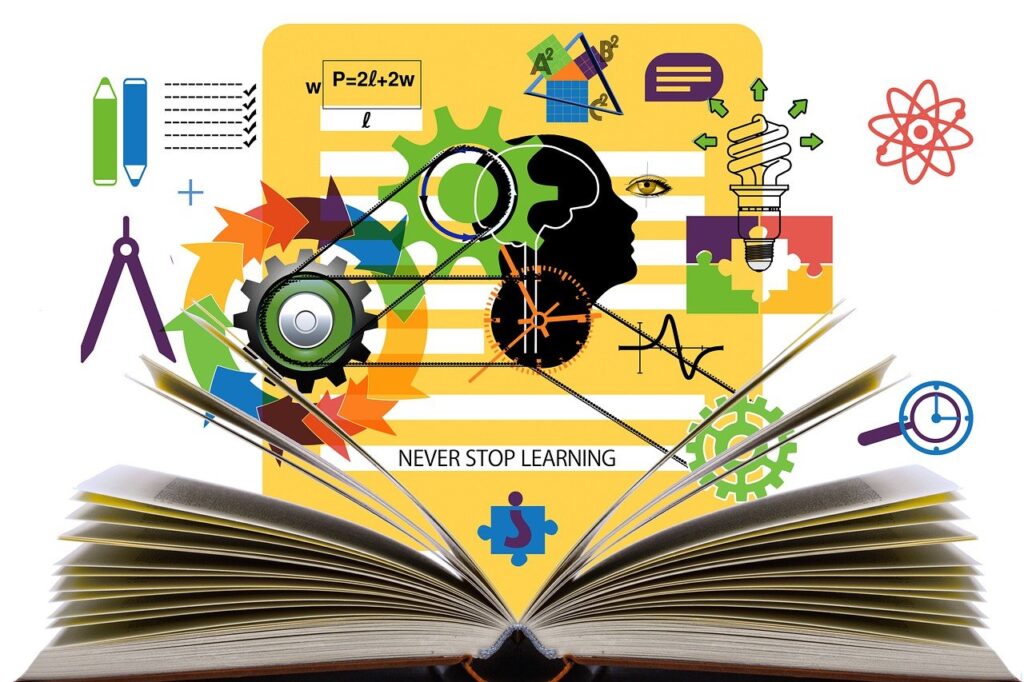Comprehensive Guide to Student Loans: Unlocking Opportunities

In today’s dynamic world, education plays a crucial role in shaping careers and futures. However, the rising cost of higher education can be a significant barrier for many students. Education Loan
Student loans have proven to be a crucial solution to alleviate these financial concerns and provide access to a quality education for all.
This comprehensive guide delves into the world of student loans, covering the types, benefits, application procedures, repayment tips, and more.
What is a student loan?
A student loan is a form of financial aid specifically designed to cover the costs of pursuing higher education. Education Loan
These costs can range from tuition, textbooks, and materials to housing and living expenses. Student loans are offered by many financial institutions, including banks and private lenders. They are typically characterized by favorable interest rates and terms tailored to students.
Types of Student Loans
There are mainly two types of student loans: government (government-subsidized) and private loans.
- Federal Student Loans
Federal loans are funded by the government and typically offer lower interest rates and more flexible repayment options. Here are some common types:
Direct Subsidized Loans: These loans are available to students with demonstrated financial need. The government pays the interest during the course of your studies, during the grace period, and during grace periods.
Direct Interest-Free Loans: Unlike subsidized loans, these are available to all students regardless of their financial need. Interest is charged during the course of your studies and the term of the loan.
PLUS Loans: Parents of college and graduate students who are dependent on their education can borrow money through PLUS loans to cover educational expenses not covered by federal loans.
- Private Student Loans
Private loans are offered by banks, credit unions, and other financial institutions. These loans often require a credit check and interest rates can be higher than government loans. However, they can sometimes cover a larger portion of your tuition costs.
Benefits of Student Loans
Student loans offer a number of benefits that can significantly reduce the financial burden on students and their families. These benefits include:
Affordability: Student loans make higher education affordable for students who may not have the resources to pay for it themselves.
Flexible repayment plans: Many lenders offer a variety of repayment plans, including deferred payment options that allow borrowers to begin repaying after closing.
Build credit: By responsibly repaying student loans, students can build their credit score, which can help them with future financial endeavors, such as buying a car or a home.
Interest subsidies available: Federal loans may offer subsidized interest rates, which means the government pays the interest over a period of time.
Applying for a Student Loan
Applying for a student loan can seem daunting, but it can be easier to break the process down into manageable steps. Here’s a step-by-step guide:
- Assess your financial needs
Before you apply for a loan, you need to calculate your college costs, including tuition, books, room and board, and personal expenses. This assessment will help you determine how much you need to borrow. - Research loan options
Find out about different government and private loan options. Compare interest rates, repayment terms, and other features. Websites like the Federal Student Aid Office provide helpful information about federal loans. - Complete the FAFSA form
For federal loans, the Free Application for Federal Student Aid (FAFSA) is essential. This form will determine your eligibility for federal student aid and help institutions assess your financial need. - Choose a lender
If you decide to take out a personal loan, research potential lenders. Pay attention to the credit ratings, interest rates, repayment terms, and other factors that fit your needs. - Gather the necessary documents
Most lenders require documents such as your Social Security Number (SSN), driver’s license, income information, and school transcripts. Having these on hand will simplify the application process. - Submit your application
After completing your research and gathering the necessary documents, submit your loan application online or in person, depending on the lender’s procedures. - Check the loan terms
Read the loan agreement carefully and familiarize yourself with the interest rates, repayment terms, and any penalties for late payments before accepting the loan.
Tips for Managing Your Student Loan
Successfully managing your student loan is crucial to your long-term financial health. Here are some tips to keep in mind:
- Set a budget
By creating a budget, you can prioritize necessary expenses and minimize unnecessary ones. This discipline will make it easier to repay the loan on time after graduation. - Pay While You Study (If Possible)
If possible, consider paying interest while you’re still in school. This strategy can significantly reduce your total debt and lower your accrued interest. - Find out about debt relief programs
Some professions offer fee waiver programs for graduates who work in a specific field, such as teaching or nursing, for a certain period of time. Find out if you’re eligible for these programs. - Choose the right payment plan
Find out about your repayment options after you graduate. Options include standard repayment, phased repayment, extended repayment, or income-driven repayment plans. Choose one that fits your financial situation. - Stay informed
Keep track of your loan status, including outstanding balances and interest rates. Staying informed can help you make proactive decisions about your repayment strategy.
Diploma

Student loans can be an effective tool to achieve your educational goals, provided you understand the types of loans available and know how to manage them effectively.
By completing the application process and making informed decisions, students can secure the funding they need to invest in their future.
Remember to do thorough research, create a sensible budget, and stay on top of your repayment obligations to ensure a smooth transition to life after college.
Investing in your education through a student loan can provide significant benefits in terms of career opportunities and personal development. Getting there can be challenging, but with the right tools, knowledge, and determination, you can overcome financial obstacles and achieve your dream of further education. Whether you take out a government or private loan, make sure you are well-informed and prepared to take the next step in your academic career.
